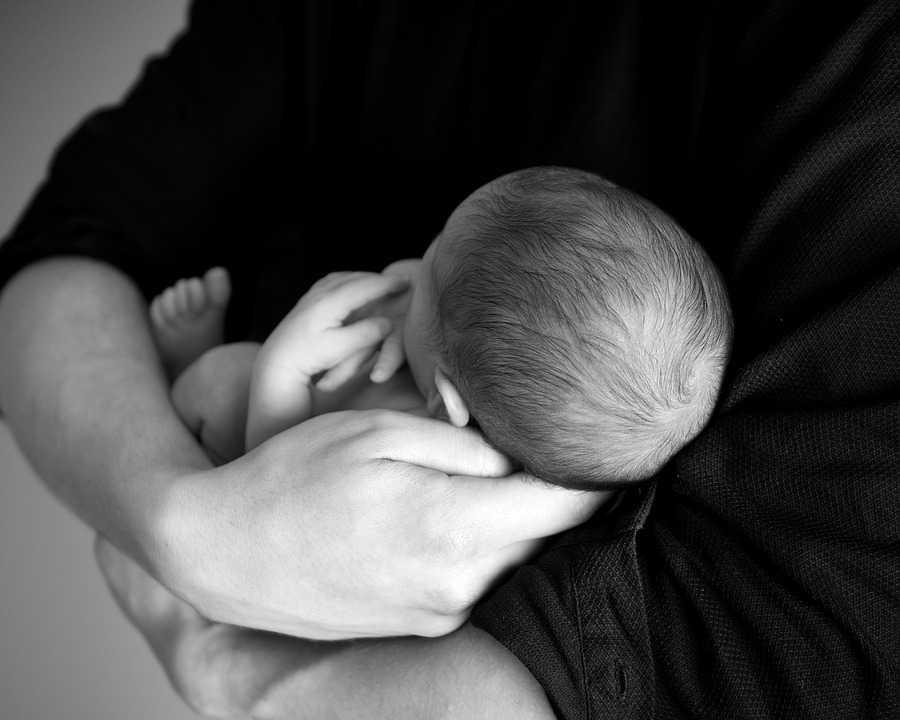Can you remember your last tetanus shot? There’s a decent chance you haven’t had the new version, Tdap, which came out in 2005. Data from the Centers for Disease Control and Prevention (CDC) suggests that only 18 percent of adults ages 19 to 64 are up to date.
In addition to tetanus and diphtheria, Tdap protects against pertussis, the disease that triggers whooping cough and is most severe in infants, says Marietta Vazquez, M.D., an associate professor of pediatric infectious diseases at Yale School of Medicine.
Because babies have tiny lungs, it’s harder for their bodies to cope with the inflammation and mucus caused by whooping cough, Dr. Vazquez says.
Most babies receive their first pertussis shot at two months, but doctors administer doses over the course of several months. That means babies aren’t fully protected until they’ve received the last dose, which could come at the one-year mark. Until then, they’re vulnerable.
Get your shot at least 2 weeks before you meet the baby to give your immune system enough time to fully respond to the virus, says Mary Healy, M.D., director of Vaccinology and Maternal Immunization at the Center for Vaccine Awareness and Research at Texas Children’s Hospital.
Under the Affordable Care Act, insurance plans are supposed to cover the shot, and many pharmacies, including CVS and Walgreens, offer it.
2. Sign up for the flu shot, too.
For you, catching the flu usually means buying Kleenex in bulk and camping out on the couch for a couple days. For babies, it’s a different story.
“One out of every two infants who develop influenza will end up in the hospital,” says Dr. Vazquez.
Babies can’t get a flu vaccine until they’re 6 months old, and they need two doses spaced a month apart to be protected, Dr. Healy says. So your job is to make sure you don’t bring any flu viruses into the kid’s home.
We’re approaching the thick of flu season—last year, flu activity peaked from December 21 to 27—so the sooner you roll up your sleeves, the better. Many pharmacies offer this one, too.
3. Ask Your Doctor to Review Your Vaccine Record
If you’re behind on any other shots, now’s the time to catch up. For instance, have you ever had chicken pox? If not, then you should have received the varicella vaccine.
Babies can’t get the shot until they’re a year old. But when the rest of us get poked, it helps: One study by the CDC showed that from 1995—when varicella vaccination became widespread—to 2008, varicella infections among infants decreased by about 90 percent.
That’s important because babies who contract varicella are more likely to end up in the hospital with complications than older kids. The top reason: Their pocked skin can become infected with bacteria, causing problems such as blood stream infections and dehydration, according to the CDC study.
4. Wash Your Hands
Some bugs can’t be squashed with a shot, like the common cold and gastrointestinal viruses.
“If babies get a GI illness, they can become dehydrated very quickly,” says Dr. Healy. And since they can’t tell you they’re not feeling well, they can get sick very quickly.
To reduce the risk of transmitting germs, wash your hands before you hold the baby.
Sound like obvious advice? Well, about 85 percent of people don’t do it the right way, according to a University of Arizona study. So Dr. Vazquez recommends this classic trick: Sing “Happy Birthday” as you lather up so you know you’re doing it long enough—about 20 seconds.
Be sure to rub between your fingers, on the backs of your hands, and under your fingernails, the CDC advises.
5. Stay Home If You’re Sick
Seriously—you can meet the little one another time.
Steer clear until all symptoms, especially coughing or fever, have completely resolved, says Dr. Vazquez. The parents won’t be upset you canceled—they’ll thank you.
Source: Men’s Health

 Your buddy just became a father. While he’ll get a kick out of the football jersey onesie you bought his newborn, there’s one gift he’d appreciate even more: your compliance with the checklist below
Your buddy just became a father. While he’ll get a kick out of the football jersey onesie you bought his newborn, there’s one gift he’d appreciate even more: your compliance with the checklist below